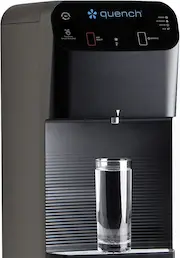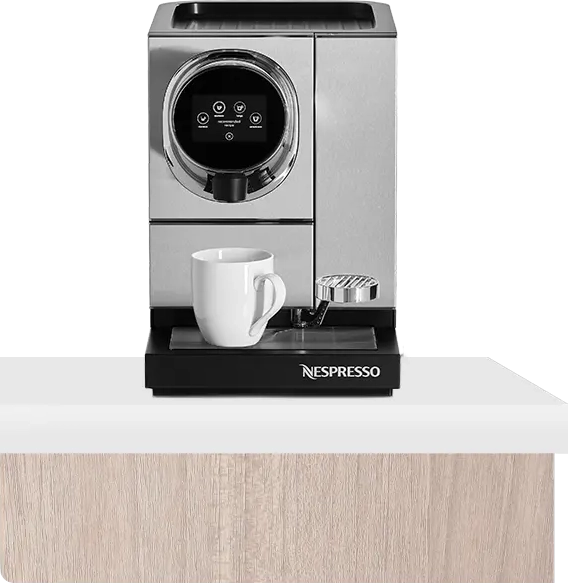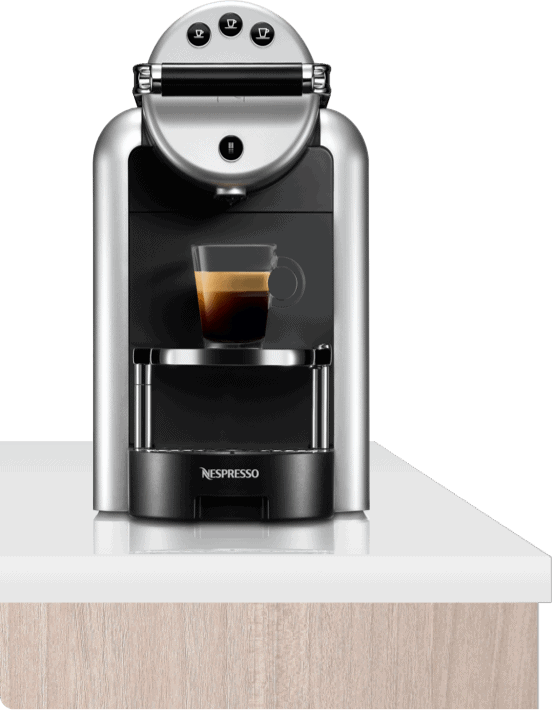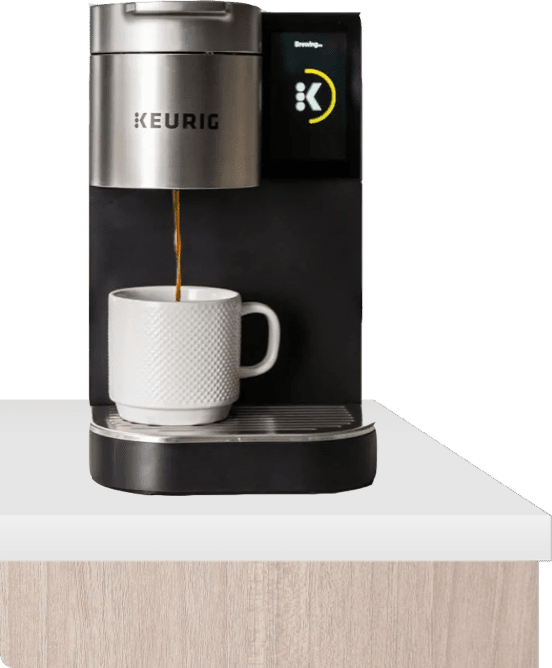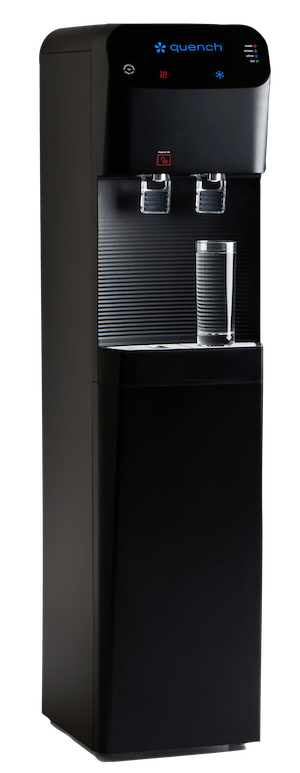Recent years have seen more people choosing chilled coffee options year-round than ever before. As this love affair with cold coffee continues to reach new heights, you might be considering two popular choices that have become household and workplace staples: iced coffee and cold brew. While both alternatives offer a chilly take on a traditional cup of Joe, they’re not one and the same.
We’re delving into the key differences between these beverages, including their unique brewing methods, flavors, and characteristics, so you can determine which option is right for you.
What Is Iced Coffee? Cold Brew Coffee?
Iced coffee is a caffeinated beverage made by cooling down hot brewed coffee with ice. This generally leaves a flavor profile that reflects the regular brewed coffee, maintaining its acidity and unique flavor despite being chilled. Cold brew, on the other hand, requires a lengthy steeping process where coarsely ground coffee is soaked in cold water for a long period — typically from 10 to 24 hours. This brewing method creates a smoother, less acidic drink, often with chocolatey or nutty undertones because of the slow extraction process.
What’s the Difference Between Iced Coffee and Cold Brew?

While both of these popular caffeinated beverages do a great job of delivering a cool and refreshing coffee experience at work, let’s take a closer look at the distinct differences:
How Are They Brewed?
Making a traditional iced coffee is the same as making hot coffee — with just one extra step. For an iced beverage at home, simply go through your usual brewing process, let it cool, and pour it over ice. Then, you can add any sugar, milk, or cream to get the sweetness you prefer.
Cold brew concentrate, on the other hand, takes longer to create. Doing so involves steeping medium-to-coarse ground coffee in room-temperature water for an extended period (i.e., longer than 12 hours). After this time, the mixture is filtered to leave a clean, concentrated cup. This is unique because, unlike regular coffee, a cold brew will never be exposed to heat.
Which Coffee Type Has More Caffeine?
In addition to its specific brewing method, cold brew coffee is also known for having a higher caffeine content due to its longer steeping process. But, how much of a difference is there?
A 16 oz. regular iced coffee has about 165 mg of caffeine, while its same-sized cold brew counterpart contains over 200 mg, on average. With this in mind, it comes as no surprise that scientific reports reveal that at most coffee shops, a cold brew will have roughly 50 mg more caffeine than the average iced coffee option.
Simply put, the coffee lover who opts for a cold brew is likely to get a stronger jolt of energy with less liquid. But, keep in mind that this can also depend on other factors, including how much you dilute each cold coffee drink with milk, water, or cream.
Does Cold Brew Taste Different From Iced Coffee?
The last main difference between these two coffee options is the flavor you can expect. Despite high caffeine levels, cold brew is beloved for its smooth taste with notes of chocolate. And, because it’s brewed as a coffee concentrate, you can add milk, ice, or cream to your heart’s desire and it won’t be watered down.
Ice coffee, while less acidic than hot coffee, has a higher acidity than cold brews, giving it a brighter flavor profile. This type of coffee is also complemented with milk, cream, and ice, but dilutes much quicker.
Exploring the Health Benefits of Both Beverage Options

Consuming a moderate amount of chilled coffee can lead to benefits like:
- Boosted metabolism: Both hot and cold coffee are associated with a modest increase in metabolic rate due to the caffeine content. Because this supports burning a few extra calories during the work day, the beverage can potentially aid in weight management. But, it’s important to remember that any metabolic effects may vary from person to person.
- Improved cognitive function: The caffeine levels present in cold brew and iced coffee can enhance brain function and improve alertness and focus. Moderate java consumption has subsequently been linked to increased productivity, better concentration, and a reduced risk of cognitive decline — which is often a linchpin to maintaining performance levels during the workday.
- Increased antioxidants: A cup of joe is rich in antioxidants, which are necessary to fight pathogens in the body and reduce the risk of chronic diseases. Chlorogenic acid and caffeine, the most common antioxidants found in coffee, are associated with potential benefits, including a lower risk of heart disease and neurodegenerative disorders.
- Increased fiber intake: With the American Dietetic Association reporting that men, on average, need about 38 grams of fiber a day and women require around 25 grams, coffee drinkers can rest assured that even a small cup can contain as much as 1.5 grams of fiber. This is not only beneficial for digestive health, but it can also help regulate blood sugar levels.
- Reduced risk of certain diseases: Research suggests that moderate coffee consumption may be tied to a lower risk of certain diseases. This includes a decreased risk of developing conditions such as type 2 diabetes, liver diseases (e.g., cirrhosis and liver cancer), and Parkinson’s disease.
- Mood enhancement: Because the caffeine in cold brew and iced coffee can stimulate the release of mood-boosting neurotransmitters like dopamine and serotonin, this popular beverage can also contribute to an improved frame of mind and a lower risk of depression. As a result, it’s easier to maintain a positive attitude and promote feelings of satisfaction at work.
The Unique Advantages of Cold Brew
In addition to the several health benefits linked to drinking cold coffee, cold brew has individual advantages to note. For example, hot coffee may contain more total antioxidants than cold alternatives, but cold brew tends to be higher in antioxidants than iced coffee because of the slower brewing process. What’s more, cold brew coffee is also lower in acidity than iced options, which is good news for the coffee lover with a sensitive stomach.
Answering Other Cold Brew and Iced Coffee FAQs
With the distinctions and health benefits of both popular coffee drinks in mind, we’re answering some of the other most frequently asked questions:
Why Is Cold Brew More Expensive Than Iced Coffee?
If you’re making a trip to the coffee shop on the way to the office, keep in mind that picking up a cold brew will be more expensive than an iced coffee. The reason behind this is simple — cold brew coffee costs more to make, requiring additional coffee, time, and resources that aren’t required for regular iced options.
Does Cold Brew Coffee Require Special Equipment?
If you’re interested in making cold brew coffee at home, you’ll be happy to hear that the process is simple and doesn’t require any special equipment. Here are simple instructions you can follow to prepare this drink:
- Measure out the water and coffee grounds at a ratio of eight to one (e.g., for about two cups of water, you would need 4.5 tablespoons of coffee).
- Mix the cold water and coffee grounds in a container and stir.
- Cover the container and let it sit at room temperature for 18 to 20 hours.
- Place a paper coffee filter over an empty jar or pitcher and slowly pour in the coffee to remove the grounds.
- Serve chilled or on ice, and feel free to add milk or sugar at your preference.
- You can store leftover cold brew in the fridge, where it will last for up to 14 days.
Does Cold Brew or Iced Coffee Last Longer?
Cold-brewed coffee typically stays good for longer than an iced alternative: You can store a cold brew in the fridge for up to two weeks, while it’s best to consume an iced beverage within a few days of the brewing process. And, cold brew coffee can even be frozen for up to six months — so you can savor your java even longer.
Which Cold Coffee Beverage Is More Popular?
Cold brew is quickly becoming a favorite among coffee drinkers. In fact, Technavio found that the cold brew coffee market share is expected to increase by $1.37 billion from 2020 to 2025, with 57% of the market’s growth originating from North America during the forecast period.
However, although reports reveal that sales of iced coffee increased less than cold brew, coffee drinkers still prefer iced coffee as their beverage of choice. This comes from surveys that determined customers ordered 2.8 billion servings in the first half of 2022, compared to 373 million servings of cold brew.
Finding the Right Coffee Offerings for Your Workplaces
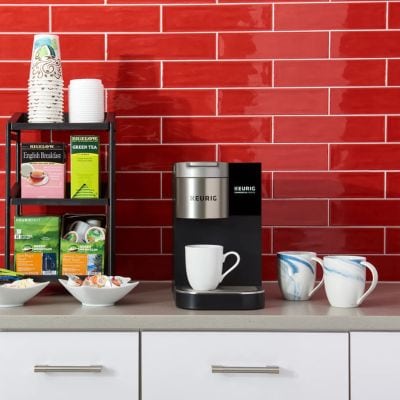
When it comes to choosing between iced coffee and cold brew, there isn’t a definitive “better” option. It ultimately boils down to your individual preferences and any specific limitations you might have. Understanding what makes these beverages unique and recognizing what you’re seeking in terms of flavor and caffeine levels can help inform this decision on any given day.
And, for workplaces in pursuit of a more sustainable and delicious coffee solution, look no further than Quench. We have a wide range of coffee machines that leverage advanced water filtration technology, so your valuable team members can enjoy a clean, great-tasting caffeine boost during their well-deserved breaks.
While our machines exclusively offer hot-brewed coffee, we know that some employees prefer a chilled coffee alternative. That’s why we also offer premium ice machines that pair perfectly with our hot coffee brewers, so employees can easily make their favorite iced beverage during the workday. And, through our customer portal, your business can effortlessly order new coffee flavors, break room supplies, or Quench coffee machine accessories, to ensure you have everything you need to give your teams a satisfying coffee experience.
Ready for clean and delicious iced coffee in your workplace? Explore our coffee machines and ice machines, or get a free estimate to get started.
